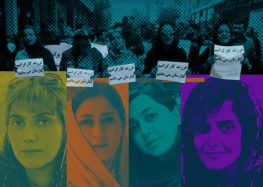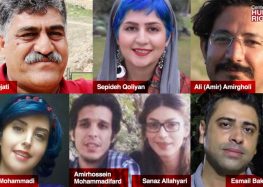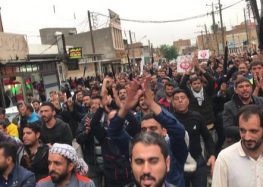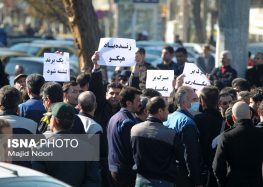Labor Protests Sweep Iran
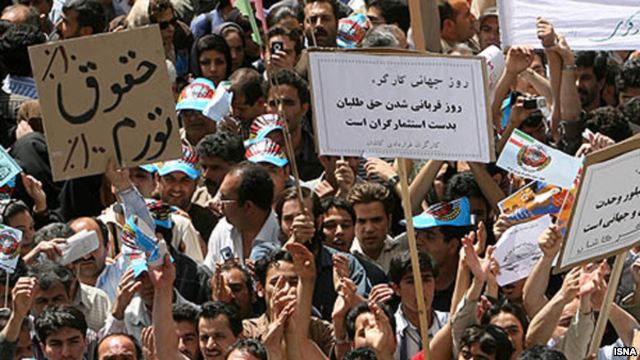
Between January 20 and January 29, 2015, at least eight labor protests have taken place in different cities in Iran.
A wave of labor protests has been sweeping through Iran over the past ten days. The protests are focused on workers’ demands for wage increases to keep up with the growing rate of inflation, payment of back wages, and other issues such as layoffs and non-renewal of labor contracts.
Between January 20 and January 29, 2015, at least eight labor protests have taken place in different cities, as reported by Iran’s Labor News Agency, ILNA. The protests have taken the form of work stoppages, gatherings in front of offices they hold accountable, and group letters to the Speaker of the Parliament or the President.
Khatoon Abad Copper Workers
More than 200 workers from the Khatoon Abad Copper Company’s subsidiaries gathered with their families for three consecutive days in front of the Shahr-e Babak Governor’s Office in Kerman Province between January 27 and 29. The workers were protesting an employment examination in the Khatoon Abad Copper Industrial Complex, which they believe threatens their job security. The workers fear that the employer is introducing the examination as a way to eliminate contract workers who have worked in the complex for four years with the hope of one day becoming regular employees, one worker explained to ILNA.
Varamin Sugar Company
Two hundred Varamin Sugar Company workers protested the closure of the company and their loss of jobs on January 28.
Northern Anomali Mine
On January 28, thirty mineworkers from the Northern Anomali Mine in Bafgh protested their dismissal by gathering in front of the Central Iron Ore Mine in the town. The workers demanded to be hired in the mine.
Parsylon Thread Company
More than 70 retired Parsylon Thread Company workers gathered in front of the Lorestan Province Governor’s Office in Khorram Abad on January 28. The workers, who retired between 2012 and 2014, are still owed back pay from 2008 to 2011.
Mehriz Tejarat Cement Company
Workers from the Mehriz Tejarat Cement Company stopped work on January 26 and 27 to protest ill treatment by factory managers, and to demand the managers’ dismissal.
Ahvaz Water and Wastewater Company
A group of contract workers from Ahvaz Water and Wastewater Company also gathered on January 27 to protest non-payment of four months’ wages and the employer’s share of their insurance. The Water Company’s Managing Director appeared at the protest and promised partial payment of the outstanding wages over the coming days.
1400 Tazreh Mine Workers Protest Outstanding Wages
On January 25 and 26, 1400 workers from Tazreh Mine in Semnan Province gathered in the mine and stopped work to protest the three months of outstanding wages owed to them. The workers also gathered in front of the Shahrood Governor’s Office on January 26 to demand answers. In addition to not getting paid for three months, their employer has failed to pay their insurance dues. The Shahrood Governor promised the workers that they will receive their back pay within the next ten days, but the protesting workers told ILNA that they had heard similar promises before.
Numerous Teacher Protests
While school teachers in several Iranian cities ended their two-day protests over wages that are below the official poverty line on January 21, 2015, ILNA News Agency reported that after refusing to attend classes for two days, the Shahrood teachers also gathered in front of the city’s Education Office. Teachers from Iranian cities such as Robat Karim, Shahrood, Karaj, Shahr-e Ghods, Shariar, Semnan, Marivan, Saghez, Baneh, and Islam Shahr, participated in the strikes to protest against low wages.
While the Iranian constitution ostensibly permits peaceful protests, the authorities frequently disperse, arrest and detain strikers. Labor leaders are particularly singled out for persecution and prosecution. There are no independent labor unions allowed in Iran and individuals who try to organize workers are routinely prosecuted.

